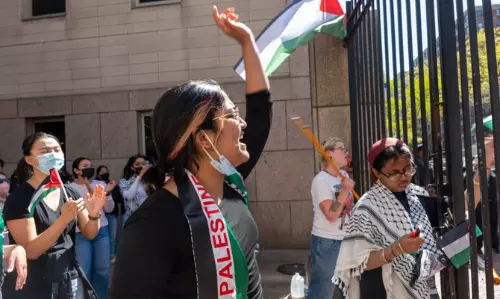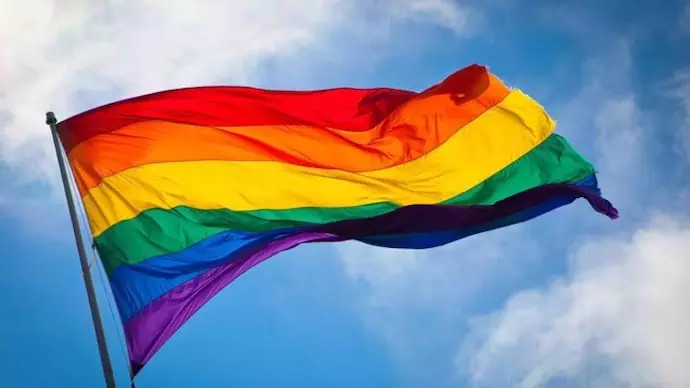
Same-sex marriage a ‘seminal issue’: 5-judge SC bench to hear pleas seeking legal validation
text_fieldsNew Delhi: The Supreme Court on Monday referred a batch of petitions seeking legal recognition for same-sex marriages to a five-judge constitution bench for adjudication.
The apex court citing that it was a ‘seminal issue’ and an ‘important matter’, said that it will begin hearing the case from April 18.
A three-judge bench headed by Chief Justice of India D Y Chandrachud said, "The case is of seminal importance. We are of the view that it would be appropriate if the issues raised are resolved by the bench of five judges of this court with due regard to Article 145(3) of the Constitution. Thus, we direct it to be placed before a Constitution bench."
The hearing of the case will be livestreamed. Senior advocate N K Kaul, appearing for petitioners in the case, pressed for livestreaming of the case as many people want to watch the proceedings.
The centre said that same-sex marriage was not in conformity with societal morality and Indian ethos, and would cause a “complete havoc” with the delicate balance of personal laws.
Despite the decriminalisation of Section 377 of the IPC, the petitioners cannot claim a fundamental right for same-sex marriage to be recognised under the laws of the country, it said in an affidavit.
However, the affidavit stated that there might be other forms of marriages or unions or personal understandings of relationships between individuals in society and these “are not unlawful”.
During the hearing, Solicitor General Tushar Mehta, who appeared for the Centre, said that it should be left to Parliament to take a call on the contentious issue.
He said that the right to love, express and freedom of choice was already upheld, and no one was interfering with that right, but that did not mean conferring the right of marriage.
Highlighting that marriage was not just a contract under the Hindu law, unlike the Mohammedan law, Mehta said, “When the question of granting recognition, legal sanction to a relationship is concerned, that is essentially a function of the Legislature and for more than one reason.”
‘Please do not cut down arguments of anyone. This is an issue that will affect society as a whole. Please have the entire gamut of the issue. The SC is shouldering a very heavy responsibility of deciding how society would develop henceforth. It is not a matter of a few hours or days, it will have to be gone into threadbare’, Mehta said.
He further told the bench that the moment marriage as a recognised institution takes place between same-sex people, questions would arise about the process of adoption. Parliament would have to assess the child’s psychology and whether a child can be raised by same-sex parents.
In response to Mehta’s arguments regarding the psychological impact on child reared by same-sex couples the CJI said, ‘Mr Solicitor, the adopted child of a lesbian couple or of a gay couple does not necessarily have to be lesbian only. The child may or may not be.’
‘In this, Parliament has to debate the psychological impact on a child who has parents of the same sex, either two men or two women, juxtaposed to a child groomed by a heterosexual couple. Parliament will take a call, keeping in view societal ethos, and several other factors which go into law making, whether same-sex could be legally recognised,’ Mehta said.
The bench said, ‘This is a matter important enough to invoke Article 145(3) of the Constitution and refer it to the five-judge constitution bench. It is a seminal issue. The petitioners seek recognition of the right of same gender couples to marriage. Besides relaying on decisions of the court in K Puttaswamy (right to privacy) and Navtej Johar (decriminalisation of gay sex) cases, petitioners have asserted broader constitutional entitlements arising out of right to life and liberty, right to dignity which is embodied in the provisions of the Constitution including its Preamble and Articles 14, 19 and 21.’
‘Having regard to the broader context of the petitions before this court and the inter-relation between statutory regime and constitutional rights, it is appropriate that the issues raised are resolved by a five-judge bench having due regard to Article 145(3),’ it added.
Advocate Neeraj Kishan Kaul said either the Special Marriage Act could be harmoniously construed to recognise same-sex marriage or the court could rely on the Navtej Singh Johar verdict to recognise it.
























